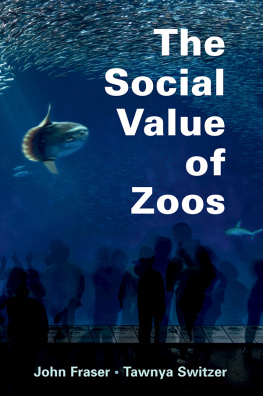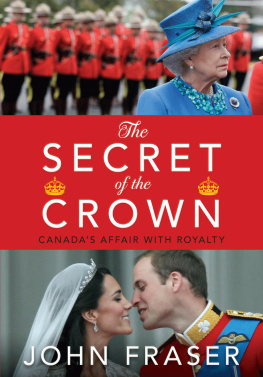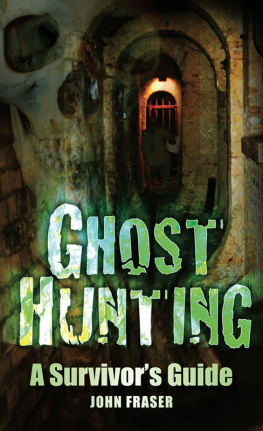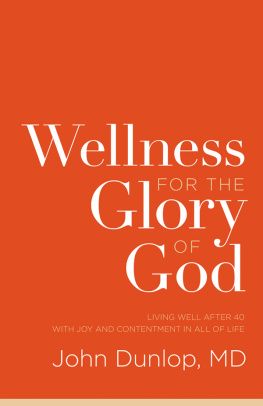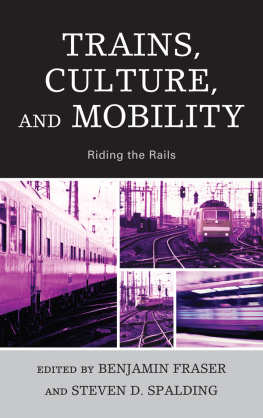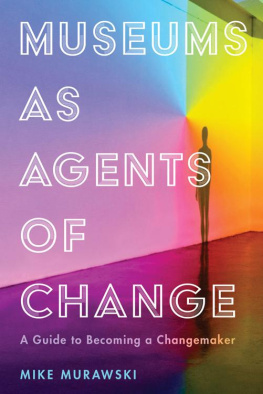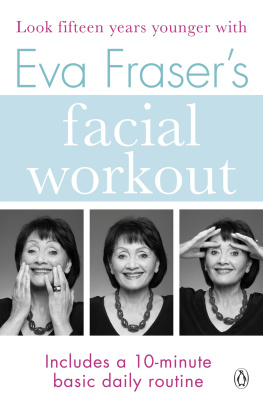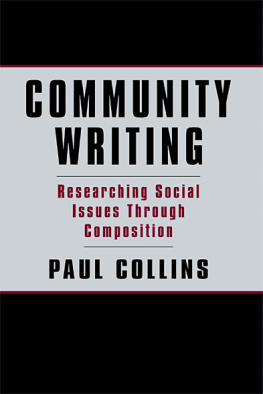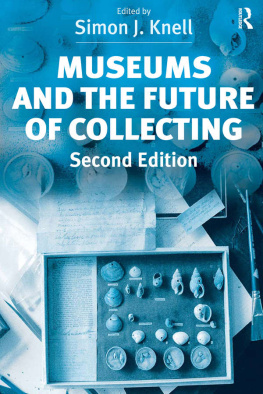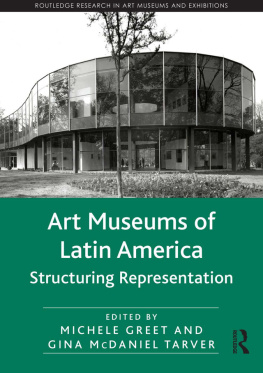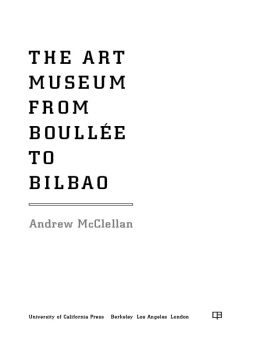First published 2010 by Left Coast Press, Inc.
Published 2020 by Routledge
2 Park Square, Milton Park, Abingdon, Oxon OX14 4RN
52 Vanderbilt Avenue, New York, NY 10017
Routledge is an imprint of the Taylor & Francis Group, an informa business
Copyright 2010 by Taylor & Francis
All rights reserved. No part of this book may be reprinted or reproduced or utilised in any form or by any electronic, mechanical, or other means, now known or hereafter invented, including photocopying and recording, or in any information storage or retrieval system, without permission in writing from the publishers.
Notice:
Product or corporate names may be trademarks or registered trademarks, and are used only for identification and explanation without intent to infringe.
Cover: carved picture frame inspired by the Pillars and Portals: Stories in Stone workshop and tour. Photo courtesy of the Philadelphia Museum of Art.
Composition by Hannah Jennings Design, Chicago/St. Petersburg.
ISSN: 1559-6893
ISBN 13: 978-1-59874-859-8 (pbk)
Museums & Social Issues
A Journal of Reflective Discourse
Volume 5 Number 2 Fall 2010
Pursuing Wellness
Edited by John Fraser and Judy Koke
Judy Koke and John Fraser
David Roland
Elizabeth Kunz Kollman, Christine Reich, Larry Bell, Juli Goss
Jennifer Binnie
Rosa Cabrera and Ruth Gomberg-Munoz
Amir Parsa, Laurel Humble, and Courtney Gerber
Janice Merendino and Marissa A. Clark
Joyce Zazulak, Karen Scott Booth, David Price, and Carol Podedworny
Patrice G. Saab, Sean Duran, Judith R. McCalla, Judy A. Brown, Lucia E. Williams
Nicole L. Garneau and Brian Hostetler
Deborah Stokes
Reviewed by Jeanine Ancelet, Sharisse Butler and Angie Ong
Jackie Armstrong
Museums & Social Issues
A Journal of Reflective Discourse
Editorial Board 2010
John Fraser, Director, ILI-NY, Institute for Learning Innovation
Robert Garfinkle, Director, Science & Social Change Program, Science Museum of Minnesota
George E. Hein, Professor Emeritus, Lesley University
Judith Koke, Deputy Director, Education and Public Programming, Art Gallery of Ontario
Randi Korn, Director, Randi Korn & Associates, Inc.
Lisa Roberts, Consultant, Chicago
Richard Sandell, Director, Department of Museum Studies, University of Leicester
Liz evenko, Director, International Coalition of Sites of Conscience
Marjorie Schwarzer, Chair, Department of Museum Studies, John F. Kennedy University
Lois H. Silverman, Museums in Social Service, Bloomington, IN
Douglas Worts, Culture and Sustainability Specialist, WorldViews Consulting
Editor: Kristine Morrissey, Director of Museology, University of Washington
Managing Editor: Alex Curio, University of Washington
Possible Selves in Health
Judy Koke and John Fraser
What does wellness really mean? How do we enjoy the experience of being well or honor good health? What does it take to proactively court the most positive potential for your future self? Health is one of the pressing topics of our age. This issue sets out to look at how museums create public value by bringing health issues to the fore.
Museums are public trustees of material culture and offer forums for debating our relationship to society as a whole. The relatively recent revolution in thinking about participatory experiences in museums has helped our entire field recognize that museums are places where people come to explore who they are in relation to other people, beings, ideas, and things. For medicine, however, the issue is as much about who am I as it is about who are we. Health is ultimately personal. We can take ownership of our healthiness or, as is frequently the case, we can ignore indicators of our mortality and take risks. In either case, museums offer unique opportunities to explore what it means to be the owner of a body, its limits, its operating rules, and its potentials. Museums of all types have been exploring the body through a humanities lens, through the medical science of the body, and at the policy level, by considering who has or is denied access to the systems that can save life.
For the past two decades, museums have been embroiled in a series of conversations about the public value of museums, searching for ways to be more relevant to their communities. Medical oddities, preserved human specimens, and medical antiques pepper artifacts strewn throughout the attics of museums. Yet these artifacts capture the imagination of young and old alike because I am that. As David Roland explains in the article following this introduction, health is a key issue, regardless of nationality. It is an issue of pressing economic importance, and is central to the success of a nation and its citizens. Museums that focus on any issues related to health create exciting opportunities for their users whenever they offer them access to the operators manual for their body.
We, as guest editors of this journal, may have different views on wellness than the baby boomers who came before us and the generation Xers that follow, but to us, this issue focusing on health and wellness topics in the museum setting represents truly valuable opportunities for museum users across their life-courses. While many strongly associate health education with the K-12 formal education system, health and wellness has unique interest for a large swath of the public; it is something that intrigues us with changing emphases as we age. Developmentally, once weve been adults long enough, our early senses of invincibility and possibility turn toward more specific health issues, our partners health, our parents predicaments, our childrens opportunities, and what it will take to sustain ourselves through our retirement years. It is this changing focus on health throughout our lives that can make this focus for museums truly useful to our publics.
We cannot talk about health and wellness, however, without confronting threats to our health; exposure to toxins, increasing levels of hormones in our food supplies, how our collective actions create risks for ourselves and others, and how our health is integrally tied to the health of our biosphere. If it is the mission of the contemporary museum to advance understanding of science, culture, and our world, then health and wellness topics are integral to that mission.
As guest editors, we approach this question from two perspectives; one of us worked for more than ten years as a health professional, while the other was an athlete whose running career ended abruptly due to a debilitating injury. Both of us work today in the museum field, but our pasts give us different views on the potential in the museum community. Irrespective of our two frames of reference for this topic, we agree that there are very basic reasons why museums are uniquely capable of helping to shape public understanding of wellness and health and offer these ideas in the following paragraphs.




